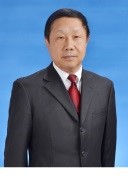The aim of a special session/panel is to bring together researchers working on a specific topic of interests.
If you are interested in organizing a special session/panel, please send your proposal to the conference secretariat at icqrms@uestc.edu.cn as early as possible. The proposal should include the session/panel title, the scope and motivation of the session/panel, and the organizers and their brief CVs.
Both full papers and extended abstracts can be submitted to the conference and the special session should include more than 5 submissions.
■ Important Dates
Proposal Due May 31, 2024 Extended to June 15, 2024
Abstract Due June 15, 2024 Extended to June 30, 2024
Full Paper Due June 20, 2024 Extended to June 30, 2024
■ Submission Notices
If submitting to a special session/panel, please send a copy of the submission to the special session/panel chair(s), indicating paper ID.
Special Session #1. Trustworthy Safety in Engineering Assets, by Zifei Xu (zifei.xu@liverpool.ac.uk), University of Liverpool, UK; Yu Sun (sunyu9@hrbeu.edu.cn),Harbin Engineering University, China;Xu Cheng (xu.cheng@ieee.org),Tianjin University of Technology, China.
Special Session #2. Artificial Intelligence for Reliability and Safety in Ocean Engineering, by Huanhuan Li (h.li2@liverpool.ac.uk),Liverpool John Moores University, UK; Zhongchi Liu (liuzhongchi@centec.tecnico.ulisboa.pt), University of Lisbon, Portugal; Yunling Ye (yeyunling@whut.edu.cn), Wuhan University of Technology, China; Depeng Liu (liudepeng@cup.edu.cn), China University of Petroleum (Beijing), China
